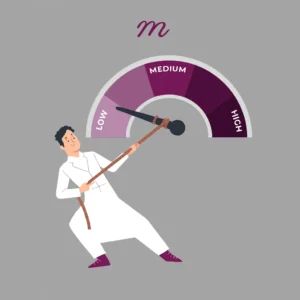Supporting the mental health of children and adolescents often feels like piecing together a complex and ever-changing puzzle. The Conners Comprehensive Behavior Rating Scale (CBRS) serves as a vital component, offering therapists, parents, and teachers a reliable framework to understand and address behavioral, emotional, and academic challenges in individuals aged 6 to 18. Whether identifying ADHD, uncovering emotional disorders, or tracking treatment progress, the CBRS provides structured insights that foster effective collaboration among caregivers and professionals.
This guide explores the CBRS’s key features, practical applications, and transformative potential in therapeutic settings. By incorporating this evidence-based tool into your practice, you can gain deeper clarity and ensure clients receive the tailored support they need to thrive.
What CBRS Offers Today
The Conners Comprehensive Behavior Rating Scale (CBRS) is an exemplar tool for assessing the multifaceted mental health needs of children and adolescents aged 6 to 18. This evidence-based instrument offers a comprehensive, 360-degree view of a young person’s behavioral, emotional, social, and academic functioning by collecting valuable insights from parents, teachers, and the child (when age-appropriate).
Designed for use in clinical, educational, and research settings, the Conners Comprehensive Behavior Rating Scales (CBRS) aids professionals in identifying a broad spectrum of disorders and concerns, including ADHD, anxiety, depression, and learning difficulties. Its standardized scoring system ensures objectivity, while age- and gender-specific norms enhance the accuracy and fairness of assessments.
Beyond diagnostics, the CBRS serves as a powerful tool for fostering collaboration among therapists, educators, and families. It guides the creation of personalized interventions, monitors treatment progress, and supports informed decision-making. By transforming complex challenges into actionable solutions, the CBRS is an indispensable resource in understanding and supporting young people.
A Deep Dive into the CBRS 4: Key Features of the CBRS
To stay ahead in understanding and addressing the complexities of mental health in children and adolescents, we’re taking a closer look at the Conners Comprehensive Behavior Rating Scale (CBRS)—specifically, its latest update, the Conners 4th Edition. This updated version brings a refined structure, new content areas, and enhanced tools for assessment, making it a must-have for modern therapists. Let’s break down its key features and explore how they elevate clinical practice.
Scales and Subscales: The Foundation of Comprehensive Assessment
At the heart of the CBRS is its extensive set of Content Scales, DSM Symptom Scales, and Critical & Indicator Items, each carefully curated to capture a complete picture of a young person’s challenges and strengths. Whether it’s measuring Inattention/Executive Dysfunction, Hyperactivity, Emotional Dysregulation, or specific DSM criteria for ADHD, Oppositional Defiant Disorder, and Conduct Disorder, the CBRS offers a detailed roadmap for diagnosis and intervention planning.
The inclusion of Functional Outcome Scales, such as Schoolwork, Peer Interactions, and Family Life, further bridges the gap between symptom identification and real-world impact, empowering therapists to design more effective, targeted interventions.
Multiple Perspectives for a Complete Picture
The CBRS includes tailored versions to ensure diverse perspectives and comprehensive assessments:
- Parent Version: Focuses on observations from caregivers, providing a home-based perspective of the child’s behavior.
- Teacher Version: Reflects how the child performs and behaves in structured educational environments.
- Self-Report (8-16 years): Allows older children to share their own experiences, fostering self-awareness and creating a complete profile.
Scoring That Delivers Precision and Confidence
The CBRS ensures accuracy through its digital scoring and reporting system, which not only saves time but also provides data visualization to make results more interpretable. The system includes advanced features like:
- Response Style Analysis to flag inconsistencies or exaggerated symptoms.
- Comparison to ADHD Reference Samples, ensuring severity assessments are anchored in reliable benchmarks.
- Within Profile Comparisons, highlighting relative strengths and weaknesses across scales for a holistic understanding of the individual’s challenges.
These features give therapists confidence in their diagnoses while offering a clear pathway to individualized care.
Built on Accuracy and Validity
The Conners 4 delivers exceptional reliability with high internal consistency and precise measurements. Its strong test-retest reliability ensures changes reflect true symptom shifts, while inter-rater insights emphasize the value of multi-informant assessments, particularly for sensitive behaviors like self-harm.
It also demonstrates exceptional validity, with a robust factor structure supporting its scales and strong convergent and criterion-related validity. Its models effectively capture key constructs like ADHD, emotional dysregulation, and functional impairments, while showing high accuracy in distinguishing clinical groups. With classification rates as high as 88.1% for ADHD and strong differentiation for depression, anxiety, and oppositional defiant disorder, the Conners 4 ensures precise, evidence-based assessments for diverse clinical needs.
Why Use the CBRS in Clinical Practice?
The Conners Comprehensive Behavior Rating Scale (CBRS) is a game-changer for therapists striving to provide personalized and effective care. Here’s why it stands out in clinical practice:
- Comprehensive Assessment: The CBRS goes beyond surface-level observations, capturing the multifaceted aspects of a child’s behavior, emotions, and academic performance. Its broad scope allows therapists to identify overlapping concerns and gain a well-rounded understanding of each individual’s needs.
- Early Detection and Diagnosis: Timely intervention is crucial in addressing mental health challenges. The CBRS excels at identifying conditions like ADHD, oppositional defiant disorder, and anxiety disorders early, enabling therapists to develop targeted strategies before issues escalate.
- Monitoring Progress: Tracking changes over time is vital for evaluating the effectiveness of treatment. With the CBRS, therapists can compare scores across multiple assessments, ensuring that interventions are on the right track and adjusting them as needed for optimal outcomes.
- Communication Tool: The CBRS fosters collaboration by bridging communication gaps between therapists, parents, and teachers. Its structured insights help everyone involved understand a child’s challenges and progress, creating a shared roadmap for success.
Incorporating the CBRS into clinical practice enhances not only diagnostic accuracy, but also treatment planning and relationship-building. For therapists committed to delivering impactful care, the CBRS is an indispensable ally.
Recognizing the Limitations of the CBRS
While the CBRS is a highly reliable and valid tool for assessing ADHD and related challenges, no assessment is without its limitations. Understanding these nuances ensures therapists use the tool effectively while remaining mindful of its scope.
- Dependence on Multi-Informant Reports: The Conners 4 relies on input from parents, teachers, and the youth themselves to provide a comprehensive picture. However, discrepancies between informants can arise due to differences in environments or subjective perceptions. These variations, while insightful, require careful interpretation to avoid over- or under-estimating certain behaviors.
- Limited Cultural Contexts: Despite improvements in inclusivity, cultural nuances and environmental factors may still influence responses. Therapists should consider cultural sensitivities and the individual’s background to ensure fair and accurate assessments.
- Focus on Specific Domains: While the Conners 4 excels in ADHD assessment and related impairments, it may not fully address other mental health conditions or broader psychosocial factors. Complementary tools or clinical interviews may be necessary for a holistic evaluation.
- Self-Report Challenges: Self-reports, especially among younger children, can sometimes lack reliability due to limited self-awareness, reading comprehension, or the tendency to under- or over-report behaviors. Therapists must weigh self-reports alongside other informants’ perspectives.
By acknowledging its limitations and adhering to ethical practices, therapists can maximize the value of the CBRS while safeguarding against potential missteps. This balanced approach ensures that the tool contributes meaningfully to the understanding and support of children and adolescents.
Unlocking Insights with the CBRS: Liam’s Case Study
Meet Liam, an 8-year-old facing challenges with focus, impulsivity, and disruptive behavior in school. Seeking answers, his therapist turned to the Conners Comprehensive Behavior Rating Scale (CBRS) for a holistic view of his struggles.
The Assessment Process
To uncover the full picture, the therapist used the CBRS Parent, Teacher, and Self-Report versions, gathering perspectives from Liam, his parents, and his teacher. The results were clear: elevated T-scores for inattention and hyperactivity, confirming ADHD as a primary concern.
Building a Path Forward
Armed with these insights, the therapist crafted a personalized intervention plan. Liam’s journey included:
- Behavioral strategies for home routines.
- Classroom accommodations to support focus.
- Self-regulation techniques tailored to his needs.
Regular progress checks using the CBRS ensured the plan stayed effective, leading to measurable improvements in Liam’s behavior and academic performance.
The Impact
The Conners CBRS didn’t just identify Liam’s challenges—it guided the way to meaningful change, empowering him and his support network to tackle ADHD with confidence.
Closing the Gap: Empowering Therapists with the CBRS
Supporting children and adolescents in their mental health journeys requires tools that are both precise and adaptable. The Conners Comprehensive Behavior Rating Scale (CBRS) shines as a reliable ally for therapists, offering structured insights that guide effective interventions. Its ability to capture diverse perspectives, track progress over time, and provide evidence-based data makes it a cornerstone of modern therapeutic practices.
By integrating the CBRS into your clinical toolkit, you’re not just addressing symptoms—you’re fostering understanding, collaboration, and meaningful change. Whether it’s identifying ADHD, uncovering emotional challenges, or empowering caregivers and educators, the CBRS equips you to meet the complexities of each case head-on. Together, let’s bridge the gap between assessment and transformation, ensuring every child gets the support they deserve.
Why other mental health professionals love Mentalyc

“It improves the quality of my work as I review my sessions … I bring a sense of continuity from session to session because of the really good summary and progress notes that Mentalyc gives me.”
Licensed Marriage and Family Therapist

“I go back and can read the notes, and it really helps me for the next session … it has made me a much better counselor.”
Licensed Professional Counselor

“It helps align the note and the plan for moving forward with sessions … it’s been a really good aid in giving me direction.”
LPC

“I benefit tremendously every time I wrap up a session and then a few minutes later, I have this AI note … it makes me a better clinician in a variety of ways.”
LPC







